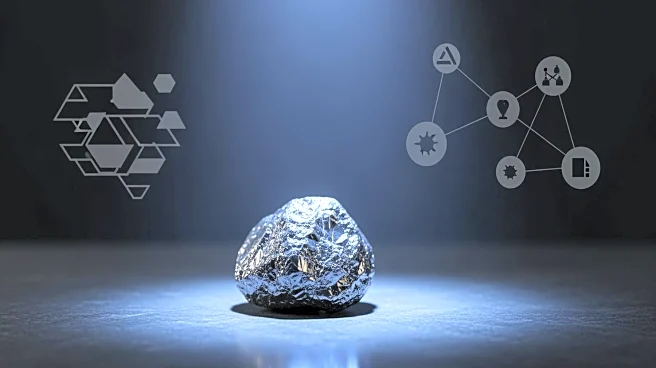What's Happening?
The UK government has unveiled a critical minerals strategy aimed at reducing reliance on foreign suppliers by 2035. The plan includes sourcing 10% of domestic demand from UK production and 20% from recycling,
backed by up to 50 million pounds in funding. Prime Minister Keir Starmer emphasized the importance of critical minerals for national security and modern life, advocating for increased domestic production and recycling. The strategy targets minerals like lithium, nickel, tungsten, and rare earths, with a goal to produce at least 50,000 tonnes of lithium domestically by 2035. The UK currently produces 6% of its critical mineral needs domestically.
Why It's Important?
The strategy reflects the UK's efforts to secure a stable supply of critical minerals essential for technology and electric vehicles, amid global competition and geopolitical tensions. By reducing dependence on foreign suppliers, the UK aims to enhance its economic resilience and support technological advancements. The focus on domestic production and recycling aligns with broader sustainability goals and could mitigate risks associated with price volatility and supply chain disruptions. The strategy also highlights China's dominance in the critical minerals sector, underscoring the need for diversification and strategic partnerships to ensure supply security.
What's Next?
The UK will likely pursue partnerships and investments to bolster its domestic mineral production capabilities. The strategy may lead to increased collaboration with countries like Saudi Arabia to strengthen supply chains and attract investment. Stakeholders will be monitoring the implementation of the strategy and its impact on the UK's economic and technological landscape. The success of the plan could influence other countries to adopt similar measures to secure critical mineral supplies and reduce geopolitical risks.











